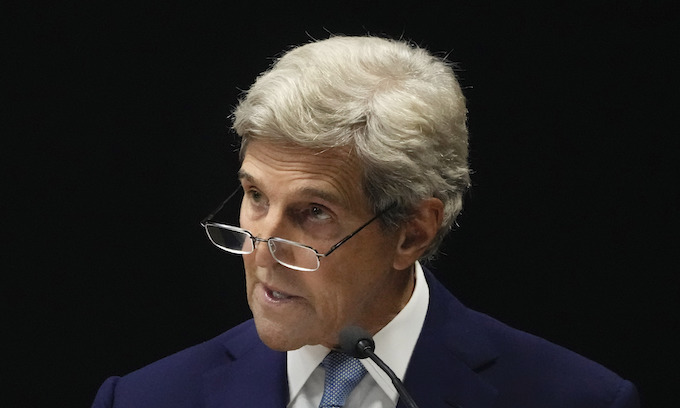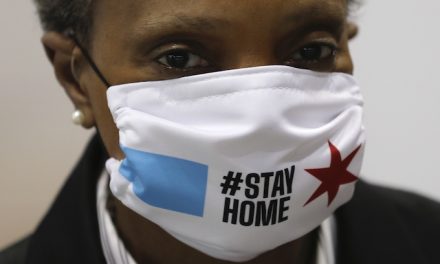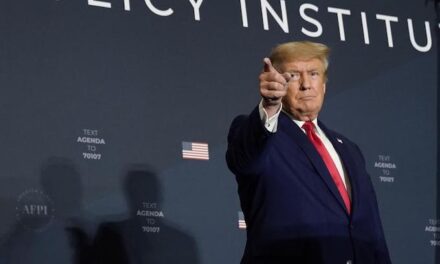Presidential envoy John Kerry urged some of the worst contributors to pollution to take action Thursday to address the effects of climate change, particularly in Africa.
Kerry met with Bronwen Maddox, chief executive of the British international affairs think tank Chatham House, ahead of the annual United Nations Climate Change Conference. During the meeting, Kerry highlighted the disproportionate impact climate change has on African nations.
“Seventeen out of 20 countries in the world most impacted by the climate crisis are in Africa. Yet, Africa as a whole is only 2.5-3% of all the emissions in the world,” Kerry said. “They’re not causing this problem.”
Kerry said the presidents of Senegal, the Democratic Republic of Congo and Nigeria told him they were prepared to move forward without drilling for gas and would like to be independent from it, but they do not know the path forward because they lack technology and funding.
“How do we develop the developing world?” Kerry asked. “We’ve been falling short grossly. We have to help these countries be able to jumpstart.”
Maddox asked Kerry for thoughts were on providing developing countries with loss and damages funding. This subject is expected to be discussed further at COP27, taking place Nov. 6-18 in Sharm el-Sheikh, Egypt. The funding means industrialized nations would pay developing nations for the impact climate change has on their country. Many of these countries lack the resources to counter those effects adequately.
“We need to help them with a lot of aspects of their challenge right now, including some of the damage,” Kerry said. “If it becomes just sort of liability and compensation — that’s not going to advance the dialogue. The dialogue has to advance around finding ways to address damages. We have to put more into adaptation — development.”
Kerry said 65% of the world is on board with some type of coordinated mitigation efforts. Some of the largest countries that make up the other 35% include Russia, China, Indonesia, Brazil, Saudi Arabia, Mexico and South Africa.
“If we can move those countries, we have a chance,” he said. ” It’s a multilateral, global threat to the planet itself. I believe it needs every voice on the planet to come together to find a way forward.”
Copyright 2022 United Press International, Inc. (UPI). Any reproduction, republication, redistribution and/or modification of any UPI content is expressly prohibited without UPI’s prior written consent.
—-
This content is published through a licensing agreement with Acquire Media using its NewsEdge technology.



















This guy does absolutely nothing to justify getting a paycheck. If he would just shut up, there would be a lot less pollution.
Make him travel in COACH.. EVERYWHERE and he’ll soon stop this nonsense.
As John Kerry stepped off his private Jet said, SAVE THE Environment, GREEN ENERGY.!
he is a communist fossil.
John Kerry as Democrats would say , as most everybody knows is a complete fraud along with Climate Change!
Kerry has been a known liar for most of his life; why on earth should he seem credible now?
Still living The Big Lie. Greatest con job in history. Climate is measured in centuries, while local weather and pollution are measured in months, or years.
Today’s “ClimaCon” artists rely on a fraudulent premise that will sadly last through the lifetimes of voters and contributors until the enrichment ceases. Actual climate data showing the complexities and inaccuracies that are used to justify a predetermined conclusion will probably not be shown the light of day until the Climate Clergy have all become organic compost.
It seems as long as professors are promised tenure and exceptional salaries and politicians can keep power/control using fear, we’re duped for the duration.
John Kerry, you’re one of a select few idiots who might believe that climate change is actually true. But it’s just another lie spread by progressives hoping to gain control of people. I hate to be the one to burst your bubble, but the boogie man and the Great Pumpkin are in the same book of fairytales; they’re not real!!!
AND we can “urge” Other nations all we like. THEY WILL KEEP DOING WHAT IS BEST for THEIR OWN nation… screw climate change.
Now that’s a case of the pot calling the kettle black
… this as he jets around the globe in his private plane! And when he’s not doing that, he repairs to his eco-unfriendly Martha’s Vineyard mansion. What a hypocrite!
I was wondering why Howie Carr calls Kerry “Live Shot”. It’s because he always has the makeup on, in case he needs to get in front of the cameras!
When Kerry says “take action” . . . what he really means is “PAY UP, BUSTER! SOMEONE HAS TO FINANCE MY ELITIST LIFESTYLE!”
So, john does this mean all your elite types, you know politicians, holly wooders, sports stars, CEO’s, COO’s independently wealthy etc. etc. will all be giving up your private planes, yachts, oversized homes, estates, limo’s etc. etc. to decrease your carbon foot prints. Show some examples that we less fortunate can all follow! Might I say in closing Hypocrites one and all. IMO
Don’t forget all their HIRED Lawns keepers (who use GAS POWERED mowers/strimmers/ hedge trimmers etc)..
Hey Kerry, the world will end one day. You and your ilk have been saying dire things for the past 70+ years. Whether it be no gas, no food, another ice age, another warming, etc. You have been wrong and will probably always be wrong. The world will end, but not on your terms.
no surprise
he’s a commie
I was tired of reading about CO2 being blamed for warming and climate change so I wrote to the CA Air Resources Board, giving them a link to an article where 31,000 REAL SCIENTISTS (and not social or political scientists) said that Climate Change was a BIG LIE and a link to another article where 400,000 years of ice core samples in Vostok, Antarctica, were studied and showed that higher CO2 follow warming, not causing it. I asked them to send me an article BY SCIENTISTS that is contrary to my articles.
I am still waiting and not holding my breath
Why the surprise?? The Big Pharma frauds were given till 2087 to divulge their data on the CLOT shots.
Horseface Kerry should fly his PERSONAL jet to China or India, the real gross polluters and lecture them. LOLOLOL!!
AS IF!!